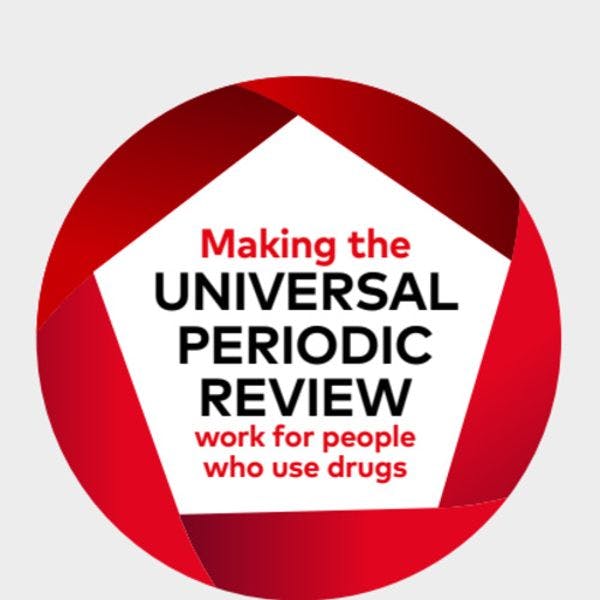El examen periódico universal y las personas usuarias de drogas
Esta publicación provee análisis, recomendaciones y guías sobre cómo la sociedad civil puede maximizar las oportunidades que supone el examen periódico universal para avanzar alternativas a la "guerra contra las drogas". Más información, en inglés, está disponible abajo.
People who use drugs have human rights and fundamental freedoms, which countries must respect, protect and promote, both nationally and internationally.
Yet human rights and drug control have existed in parallel universesI for decades, and drug policies receive little scrutiny from human rights mechanisms. This has contributed to repressive policies and practices for the control of drugs, which have led to or enabled a wide range of human rights violations and abuses worldwide. These violations and abuses disproportionately impacts the most vulnerable people in society, perpetuating cycles of poverty, violence, discrimination and marginalisation, while failing to reduce drug-related harms and risks.
The Universal Periodic Review (UPR), alongside other international and national human rights mechanisms, is an important tool for holding countries that are part of the United Nations, known as UN Member States, accountable for respecting, promoting and fulfilling the human rights of people who use drugs, as well as fulfilling the pledges countries have made through the Sustainable Development Goals (SDGs). The UPR has the potential to improve human rights everywhere, for everyone. Countries can use it to initiate national human rights processes, and it can provide a valuable opportunity for civil society to engage governments on issues relating to human rights in the context of drug policies and people who use drugs.
According to a PITCHII research study on the UPR and HIVIII, drug-related issues have been barely visible in the UPR process to date. This research shows that UPR recommendations relating to HIV and connected topics, such as policies in response to drug use, are an important tool for civil society actors to use to advocate for governments to take action, to respect, promote and fulfil the human rights of people living with HIV and key populations.
This report will:
- Introduce the UPR and explain its relevance to people who use drugs and civil society activists.
- Present a global analysis of the recommendations made by UPR cycles completed between 2008 and 2017 (cycles 1 to 3), focusing on the level of attention paid to drug-related issues by the UN Member States under review in regard to both recommendations and voluntary commitments.
- Provide recommendations and guidance to civil society on how to maximise the opportunities of the UPR.
